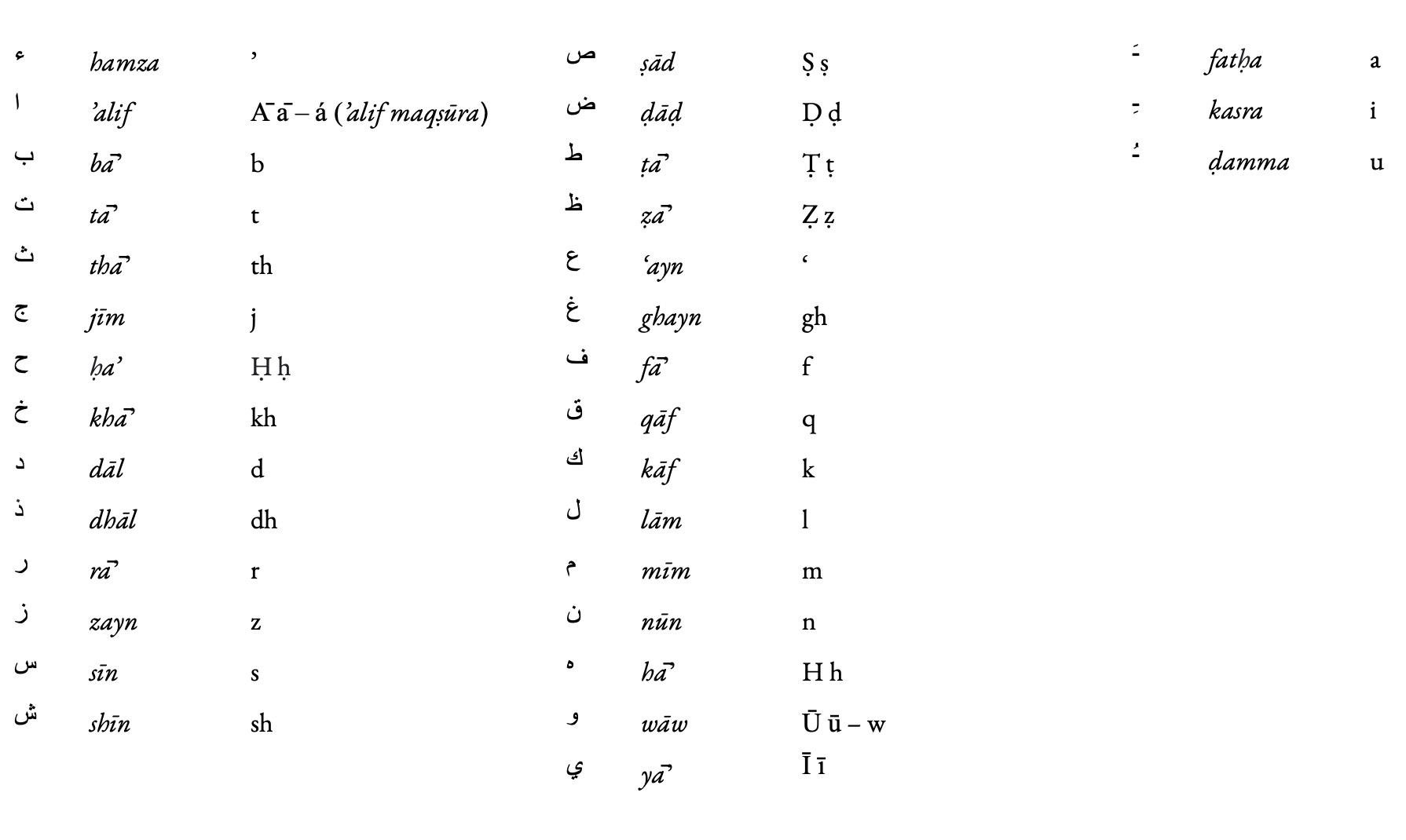The following translations make available to English readers the meaning of words, expressions, and phrases shared in Lebanese Arabic by contributors to this project. All translations are my own. Where conversations have been related to me in Arabic, the text’s type is italicized. When the subjects slip into English in their speech, the text’s type is romanized.
In cases where the literal meaning of a word or phrase cannot be adequately conveyed by a direct translation from Arabic to English, I use an English equivalent. In cases where I feel like too much of the meaning would be lost in translation, I preserve the word or phrase in Arabic but write it in Latin script. In both cases—whether Arabic to English translations or Arabic transliterations—resonant words and phrases are listed in the glossary and supplemented with information on their cultural and linguistic nuances.
The Arabic transliteration system adopted in this book is based on
the ALA-LC (American Library Association
– Library of Congress) rules."Arabic Romanization Table,” The Library of Congress.
It is applied to the names of people and places and to expressions deliberately left untranslated. An exception to the referenced ALA-LC rules is the transliteration of sun letters and the double letters (tashdīd): every letter that is doubled in Arabic is doubled in the transliteration. Also, the final vowel of words commonly written with a tā’ marbūta is denoted by an “e” when raised to a short [e] sound in spoken Lebanese.
